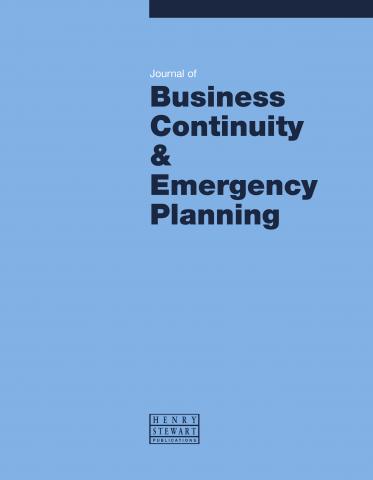"Corporate Real Estate Journal is a definitive source for the latest research-based thinking and knowledge in corporate real estate. Everyone wanting to keep up with the latest thinking needs to include this journal within their regular learning."
From protective intelligence to threat assessment: Strategies critical to preventing targeted violence and the active shooter
Click the button below to download the full text of the article.
Abstract: Acts of targeted violence — including active shooter incidents — are typically over within 15 minutes, often before the first law enforcement personnel can respond to the scene. More than a third of active shooter incidents in the USA, for example, last less than five minutes. While this stark fact is often used, with unimpeachable validity, as the cornerstone of employee security awareness training and the need for each employee to make a quick decision on whether to run, hide or fight, it also underscores the importance of another critical priority: prevention. This paper focuses on several of the most effective strategies and tactics — increasingly used across the USA, but applicable all over the world — in preventing an act of targeted violence or active shooter event. It starts with a brief discussion of the common roadblocks to prevention within enterprises today as well as the warning signs that can reveal an individual’s path toward an act of violence. Next, it defines targeted violence and summarises patterns that research has helped uncover with respect to attackers’ backgrounds, motives and target selection. This paper also outlines the crucial role played by protective intelligence and threat assessment protocols and provides several case studies to illustrate key concepts in real-world applications. Finally, this discussion points to several emerging trends in the USA and Europe, among other regions — such as radicalisation within the workforce — that are likely to continue to mature in 2016 and the years ahead.
Keywords: protective intelligence, threat assessment, workplace violence, targeted violence, active shooter, security
Matthew Doherty is SVP in Hillard Heintze’s Federal Practice, with over 24 years’ experience leading law enforcement and intelligence programmes and investigations in the prevention of violence by developing and enhancing methodologies with national security priorities. He is widely recognised as among the most experienced senior experts in assessing an individual’s potential for danger and preventing targeted violence against national leaders, national critical infrastructure, major events and corporate workplaces. As a thought leader in targeted violence, workplace violence prevention and active shooter planning, he leads Hillard Heintze’s Security Risk Management, delivering the full spectrum of the firm’s investigations, security risk management and law enforcement advisory services to clients in the Washington, DC area. He oversees large-scale, private sector security engagements. Earlier in his career, he served as the Special Agent in Charge of the US Secret Service National Threat Assessment Center. In this capacity, he managed training on threat assessment and targeted violence prevention for federal, state and local law enforcement personnel. He created the first information-sharing database (TAVISS) for the prevention of violence against protected officials. He is an advisor to the Department of Homeland Security, Science and Technology Directorate and the DHS Operating Elements in addressing important homeland security issues. He also serves on the US Marshal Service Judicial Threats Center for preventing violence against judges. He is a law enforcement advisor and trustee award winner with DHS’s Homeland Security Studies and Analysis Institute. He is Senior Fellow at the George Washington University Center for Cyber & Homeland Security.



